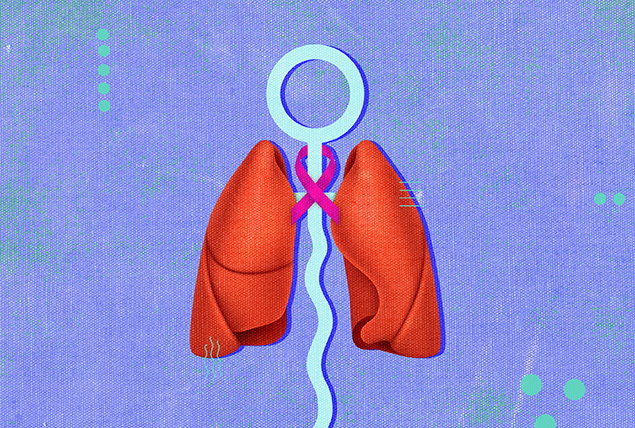It's Important to Remember Women's Sexual Health Is All-Encompassing

Sexual health is a vast topic that doesn't just focus on sexually transmitted diseases (STDs) and infections (STIs) and contraception, though they are essential parts. It also includes sexuality, gender identity, family planning, reproductive health, intimacy, mental health and relationships.
Sexual health is health. It encompasses your mental, physical, emotional and spiritual health. It means being able to have positive relationships and encounters that are safe, respectful and free from discrimination and violence.
How is women's sexual health defined and what are its most important aspects?
Women's health and sexual health
There are many steps women can take to look after their sexual health, according to Amir Marashi, M.D., a board-certified cosmetic gynecologist at Brooklyn Gynecology Place in New York City.
"Sexual health requires a positive, respectful approach to sexuality," Marashi said. "Sexual experiences with a partner should be safe with open communication."
"You should not tolerate sexual pain," said Jessica Pettigrew, M.S.N., C.N.M., a nurse practitioner at University of Colorado OB-GYN in Boulder.
At different life stages, our sexual lives and practices sometimes must change or be modified to accommodate our current state of health, Pettigrew said.
For example, if you have sexual pain, then avoiding penetration—not avoiding intimacy altogether—may be necessary for a time, Pettigrew said. Many couples settle into a few sexual routines or repertoires. Breaking out of those habits can feel vulnerable but also can be an exciting time to explore new or different sexual practices.
"Not all sexual activity has to include vaginal penetration or orgasm. I encourage women and couples to expand their conception of intimacy," she said.
Mental health and sexual health
The largest sex organ in the body is the brain, Pettigrew said. She explained that sexual desire lives in the pleasure- and reward-seeking part of our brain: think of the neurotransmitters dopamine and norepinephrine.
"I often ask women what activities or experiences they engage in for fun or pleasure, like dancing, travel, time with friends, book club, etcetera," Pettigrew said. "The COVID-19 pandemic stripped us of many of our pleasurable activities and resulted in persistent anxiety, which has yet to settle back to baseline."
Many women were in charge of remote learning for their kids or working from home, for example, which drove anxiety for a lot of them.
"If we cultivate pleasure in other aspects of our lives, it often flows over into the bedroom," Pettigrew explained.
From a menopause and mental health standpoint, many women may feel undesirable or not in the mood as bodies and minds are changing, according to Andrea Donsky, a menopause educator and researcher in Chicago, Illinois, and the co-founder of Morphus, an online community for women entering menopause.
"We don't feel like our old selves, so we may not want to engage in sexual activity until our mindset shifts or we start to feel better about ourselves again," she said.
Physical health and sexual health
Physical sexual health isn't just about protecting yourself from STIs. Marashi does stress, though, that appropriate safer-sex practices and precautions should be taken to prevent their transmission.
Women with physical health problems, specifically, autoimmune conditions or a history of cancer, can often experience a different relationship with their body. They may feel betrayed by their body or struggle with the accompanying physical changes, Pettigrew explained.
Similarly, for women who live with chronic pain, it can be difficult to experience pleasure in a body that is a source of aggravation, pain and dissatisfaction.
"In my practice, I often engage my colleagues in behavioral health to help women navigate the sometimes rocky relationship they can have with their physical bodies," Pettigrew said.
Sex toys and tools are great options for maintaining sexual health, whether solo or with a partner, Marashi said.
"When choosing a vibrator, it is important that vibrators be made of medical-grade silicone. This decreases the likelihood of material degradation over time. It can be dangerous to have parts of the vibrator peeling off onto the skin and into the body," he said.
Medical-grade silicone is also easy to clean and won't cause allergic reactions to the skin. The device should be water-resistant and easy to clean since vibrators can harbor a lot of bacteria. It is important to clean a vibrator before and after each use.
Sex drive and libido: what's normal and what's not
Male and female arousal patterns differ, and it often takes time for females to warm up and become aroused, which is why foreplay is important.
"I think it is important to discuss that sexual desire is not always spontaneous," Pettigrew said.
Many women assume they should walk around feeling turned on and horny, ready for sexual engagement.
"This is not supported by our knowledge of normal female sexual function," Pettigrew explained. "It is more common that women experience what is known as responsive desire, where they are neutral but in response to the partner. Physical arousal/desire then shows up during the sexual encounter but not always prior. This is normal."
Sexual health and reproductive health
"Unfortunately, to date, there are no predictive tests for fertility. We have no testing that can predict your future fertility," Pettigrew said. "With that in mind, I encourage women to maintain a good state of health because that is the most reliable predictor for future fertility."
In terms of monitoring reproductive health, Pettigrew generally advises healthy women to assume their fertility is normal until proved otherwise.
Prior to the age of 35, it is advised to try to conceive by timing intercourse with ovulation for 12 months before seeking evaluation for infertility.
"The exception to this is an individual who may not have regular monthly periods, which may indicate they are not ovulating on a regular basis," she advised.
Fertility declines with age for women older than 35, and for these women, it is recommended to try timing intercourse with ovulation for six months before seeking evaluation.
Menopause and sexual health
Menopause can affect sexual health in several ways, according to Donsky.
"From a physiological standpoint, because things are shifting and changing, our thyroid can go low [hypothyroid], and one of the symptoms of a hypothyroid is low libido," she said.
From a hormone standpoint, Donsky said dehydroepiandrosterone (DHEA) and testosterone levels could be low, both of which could lead to low sexual desire.
However, the role of testosterone in regulating female sexual desire and function is not well understood. Although there is evidence of benefit for short-term testosterone therapy in postmenopausal women with low sexual desire, there is not a particular serum level or lower limit of androgens or androgen precursors that is diagnostic of decreased female sexual function. It's difficult when patients are told this fact because then they want the doctor to check for a level, but there isn't a specific level that women can try to reach.
In addition, vaginal dryness is a common symptom due to declining estrogen.
"Estrogen keeps the skin and mucous membranes plump, thick and supple. But when estrogen levels fall, our skin becomes thinner, less elastic and drier, making it harder and more uncomfortable to have sex," Donsky said.
Women should work with their healthcare provider from the onset of their symptoms, and even before then.
"If you're 35 and older and you're experiencing dryness or a lack of interest in sex, speaking to a qualified provider or someone who understands your symptoms can help provide proper testing and solutions," Donsky said.
She added that there are options such as vaginal estrogen creams, which your doctor can prescribe, and moisturizers and lubricants that can help to ease any chafing or discomfort in the vaginal area.
She also advised doing your own research, speaking to someone you trust, listening to podcasts and reading books by professionals who specialize in sexual health.
"I also say to be gentle on yourself. For many of us, it's temporary, and things get better once they're in menopause," Donsky said.
Complications and related conditions
Women should be aware of STIs and STDs, which can lead to complications, Marashi reiterated. Some examples include HIV, chlamydia, gonorrhea, herpes, hepatitis B, bacterial vaginosis (BV), human papillomavirus (HPV), syphilis and mpox.
"Some STIs, like chlamydia and gonorrhea, can lead to pelvic inflammatory disease [PID]," Marashi said. "PID is a condition that causes abdominal and pelvic pain, vaginal discharge, pain during sexual intercourse, fevers [or] chills, and painful [or] frequent urination."
The way to avoid STIs is through safer sex—"safer" because no type of sex with a partner can be guaranteed to be 100 percent safe. Some sexually transmitted infections can be contracted repeatedly; others you may get once and be infected for life. The body can clear some viral STIs, including HPV and hepatitis B.
"Once the body clears one strain of HPV infection, you are less likely to be reinfected with the same strain, although it is possible," Marashi said.
Of the 100 types of HPV, about 30 can cause infection of the genitals, rectum and anus. Seven strains of HPV that cause cancer are preventable by the HPV vaccine.
"The HPV vaccine also prevents the two strains that cause genital warts, and hepatitis B immunity is mostly achieved through vaccination," Marashi explained.
Herpes is another very common viral infection. There are two types of herpes: herpes simplex virus type 1 (HSV-1) and herpes simplex virus type 2 (HSV-2). Both kinds can cause sores on the mouth, throat, eyes, vulva, vagina, cervix, penis and anus.
If you have HSV-1 or HSV-2 in the oral area—lips, mouth, throat—this is referred to as oral herpes. Herpes on the lips is known as cold sores. HSV-1 or HSV-2 in the genital area—vulva, vagina, cervix, penis and anus—is referred to as genital herpes.
More than half of Americans have oral herpes, and about 1 in 6 Americans have genital herpes.
Getting regular Pap smears is crucial, according to Marashi.
"This is a routine test that looks for abnormal cells in the cervix. Abnormal cervical cells can be cervical cancer or a precursor to cervical cancer," he said. "These abnormal cells are caused by HPV. And once you do it, depending on the results of the test and your age group, you might not need another Pap smear for three to five years."
Don't wait for a problem to contact your doctor. Regular visits are important. If you're looking for a new doctor, telehealth might be the best way to begin. Video visits are a regular part of many physicians' practices, and they're a good way to see a doctor quickly because many offer same-day appointments. Then, if follow-up is required, you have your foot in the door. Giddy telehealth is an easy-to-use online portal that provides access to hundreds of healthcare professionals whose expertise covers the full scope of medical care.


















